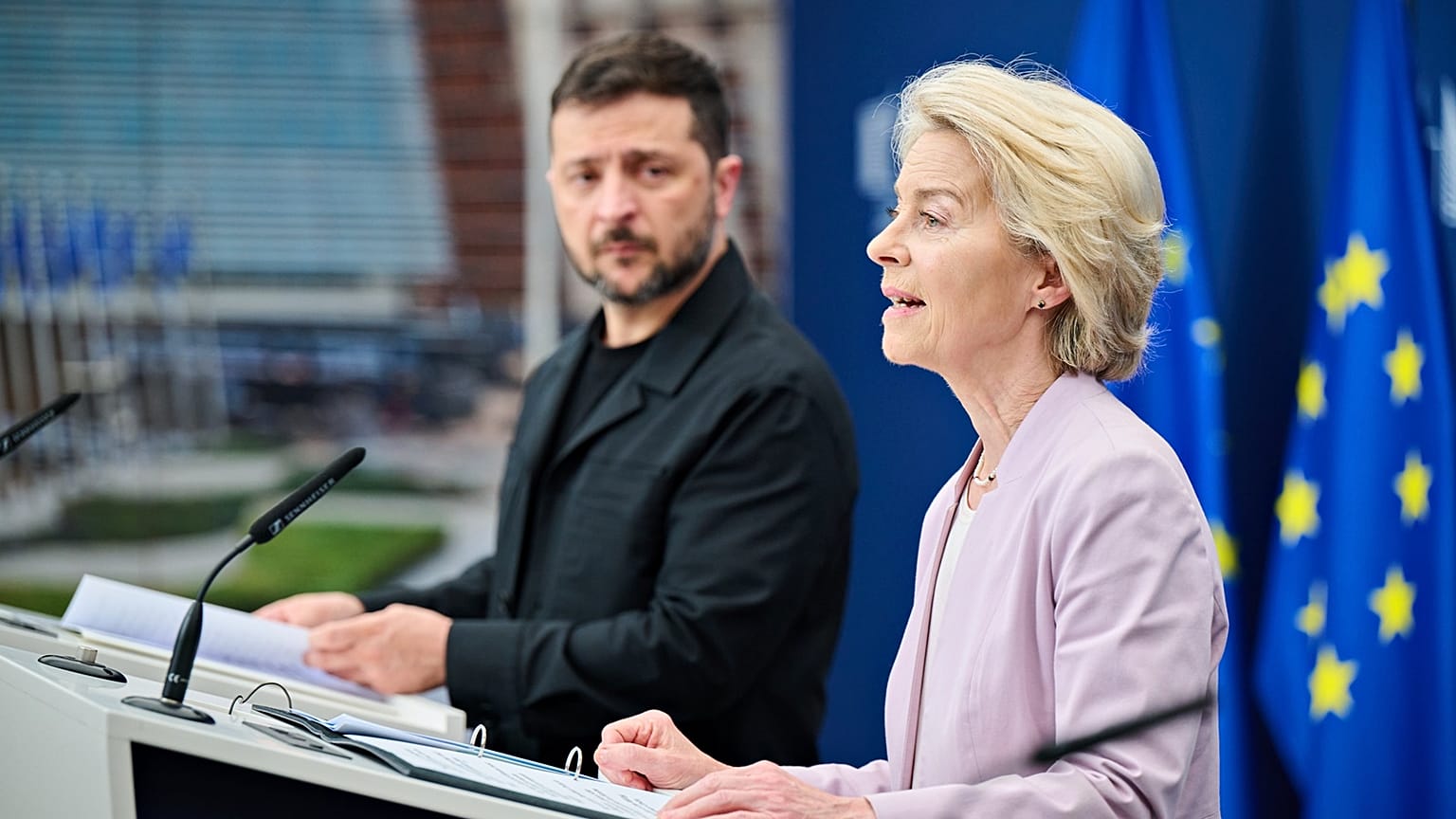Von der Leyen sends a letter to member states calling for a fast agreement on how to fund Ukraine's enormous €135 billion budget hole for next year and 2027. EU leaders will meet for a make-or-break summit in December.
Ursula von der Leyen has implored European Union countries to agree by December on a plan to cover Ukraine's military and financial needs for the next two years, estimated at a staggering €135.7 billion, according to a letter sent on Monday and seen by Euronews.
"It will now be key to rapidly reach a clear commitment on how to ensure that the necessary funding for Ukraine will be agreed at the next European Council meeting in December," the European Commission President wrote to the 27 leaders.
"Clearly, there are no easy options," she added in the letter.
"Europe cannot afford paralysis, either by hesitation or by the search for perfect or simple solutions which do not exist."
In the document, von der Leyen highlights the "particularly acute" scale of funding that Ukraine will require in 2026 and 2027: €83.4 billion to fund the Ukrainian army and €52.3 billion to stabilise the economy and address its budget deficit.
Her assessment draws from estimates by the International Monetary Fund (IMF) and Ukrainian authorities, and it is based on the assumption that Russia's full-scale war will end in late 2026, even if that is by no means certain. A ceasefire, seen as a precondition for a peace agreement, remains elusive.
The letter details the three main options to support Ukraine.
- Voluntary bilateral contributions by member states. The assistance would be disbursed as a non-repayable grant and be accounted against a member state's national budget, including any associated interest payments. Von der Leyen said the contributions should amount to "at least" €90 billion for the next two years.
- Joint debt at the EU level. Member states would have to provide legally binding, unconditional and irrevocable guarantees to borrow, based on their size, and pay it back. If a member state decided to opt out and refuse to contribute, the rest would have to increase their share. The Commission also notes that this option would carry interest payments during an "extremely busy period" to raise fresh cash in markets.
- A reparations loan based on Russia's immobilised assets. Kyiv would be asked to repay the loan only after Moscow agrees to compensate for the damages. The value of the loan could be worth €140 billion or even higher.
The first two options, she notes, are straightforward but would increase the fiscal burden, as the financial aid would come from either a direct cash contribution from member states or fresh money raised on the markets to be repaid, including interest.
The third option, the reparations loan, avoids this scenario as it would not incur extra expenses, issue fresh debt or impact national treasuries.
Instead, it would use the cash balances generated by the immobilised assets of the Russian Central Bank. About €185 billion is kept at Euroclear, a central securities depository in Brussels, while €25 billion is held in commercial banks in other EU countries. In her letter, Von der Leyen opens the door to using the entire pot.
Belgian worries ahead of crunch December summit
Still, the focus is on Belgium, host of Euroclear and the main hold-out.
Von der Leyen met Belgian Prime Minister Bart De Wever last Friday to advance the talks, which have so far yielded limited progress.
Among other things, the Belgian government has demanded maximum legal certainty and burden-sharing to counter Russia if Moscow decided to sue under a 1989 investment treaty, which foresees arbitration in case of a dispute between the two.
In her letter, von der Leyen suggests Belgium withdraw from the bilateral treaty to mitigate the prospect of retaliation.
Von der Leyen recommends changing the unanimity rules that govern the renewal of sanctions every six months to ensure that they stay immobilised for longer.
A previous attempt to change the voting rules was derailed by Hungary.
Even if all the technical safeguards were to be put in place, von der Leyen concedes that risks would remain and the proposal could be "incorrectly perceived as confiscation", which is forbidden under international law.
"As this option would be a financially and legally innovative solution, it cannot be discounted that there are potential knock-on effects, including for financial markets," von der Leyen says. "A concerted effort by the Union, and possibly international partners, to counteract such perception (of confiscation) would need to be made."
The Commission chief concludes her letter by noting that the three options she presents are "not mutually exclusive" and "can be combined or sequenced" to ensure Ukraine receives a fresh injection of aid by the second quarter of 2026.
If the political debate on the reparations loan drags on, the first two options might be deployed as "bridging solutions" to avoid a sudden cut-off.
The letter also signals that December should be treated as a deadline. None of the options is easy, von der Leyen writes, but a decision must be made quickly.
EU leaders will gather in Brussels on December 18-19 for their last meeting of the year.















